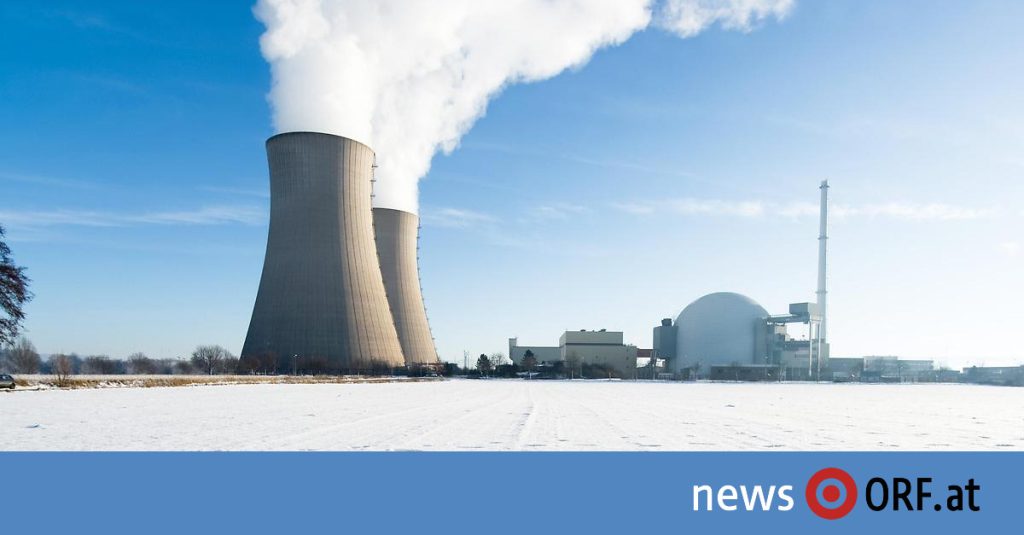The commission sent out its classification draft, which regulates the classification of various types of energy, late on New Year’s Eve. This law was preceded by months of discussions over the valuation of gas, oil, and, above all, nuclear power. Brussels has now decided to classify investments in gas and nuclear power plants as climate-friendly under certain conditions. Of course, strong criticism soon came from Austria, Germany and environmental organizations. Elsewhere, the project was welcomed with relief, for example in France, which had previously promoted nuclear power.
But the debate is now back on the table in Italy, too.
The country had already phased out nuclear power after the Chernobyl reactor disaster in the late 1980s. Like Austria, Italy gets some of its electricity from abroad – nuclear power can be included here. A return to nuclear power was rejected in the 2011 referendum. But recent large increases in electricity and gas prices are now causing problems for many Italians.
So the right-wing union led by Matteo Salvini wants to start a new attempt. Salvini welcomed Brussels’ decision and is committed to building new nuclear power plants. “The state should not stand idly by now,” he said in a tweet on Twitter: “Liga is ready to collect signatures for the referendum that will lead our country to an active, secure and clean future.”
Objections until January 12
For opponents of nuclear power – along with Austria and Germany also Luxembourg, Denmark and Portugal – there are few options left to avoid rating regulation. European Union member states have until January 12 to comment on the draft. According to information released on Saturday, implementation can only be prevented if a “strong qualified majority” of states or a majority in the EU parliament opposes it.
Accordingly, at least 20 EU member states will have to meet in the EU Council, representing at least 65 percent of the total EU population or at least 353 members of the EU Parliament. This is not likely to happen.
The European Union is rethinking gas and nuclear power plants
The EU Commission wants to classify investments in modern gas and nuclear power plants as climate-friendly. Of the 27 countries in the European Union, 13 are currently dependent on nuclear power, and only Germany chooses not to participate in it. France considers nuclear power an essential technology for a carbon-neutral economy.
sharp criticism from Austria
Climate Protection Minister Leonor Gosler (Greens) also threatened legal action. “If these plans are implemented in this way, we will sue,” Gosler said on Twitter. Gewessler writes that the EU Commission is trying with its proposal to “wash” nuclear energy and green natural gas. “Because nuclear energy is dangerous and not a solution in the fight against the climate crisis.”
Finance Minister Magnus Brunner (ÖVP) also lamented. “We have always emphasized that nuclear energy, in our view, is not a sustainable form of energy and should not be included in the rating list.” Nuclear energy is financed. “For us, that’s another reason to reject this proposal,” Brunner said.
For Asmar Karas (ÖVP), Vice-President of the European Parliament, the proposal is an attempt by “Greenwashing”: “Nuclear energy is not and cannot be a sustainable future technology.” to stop the project.
Sharp criticism of the EU decision also came from SPÖ and FPÖ, as well as from environmental organizations such as WWF, atomstopp_oberoesterreich and GLOBAL 2000.
Nuclear waste disposal as an open question
Specifically, the draft states that investments in new nuclear power plants can be classified as green if they meet the latest technical standards and if a specific plan is submitted to operate a high-level radioactive waste disposal facility by 2050 at the latest. In addition, new facilities must receive a building permit by 2045.
Investments in new gas-fired power plants should also be classified as green temporarily, particularly at the request of Germany. For example, the number of greenhouse gases emitted should be relevant. For plants approved after December 31, 2030, according to the proposal, only up to 100 grams of CO2-equivalents will be allowed per kilowatt-hour of energy – calculated over the life cycle.

“Food practitioner. Bacon guru. Infuriatingly humble zombie enthusiast. Total student.”








More Stories
Kyiv: Russian Kursk offensive halted
US Presidential Election: Former US Government Officials Warn Against Donald Trump's Election
Netherlands wants to leave asylum system